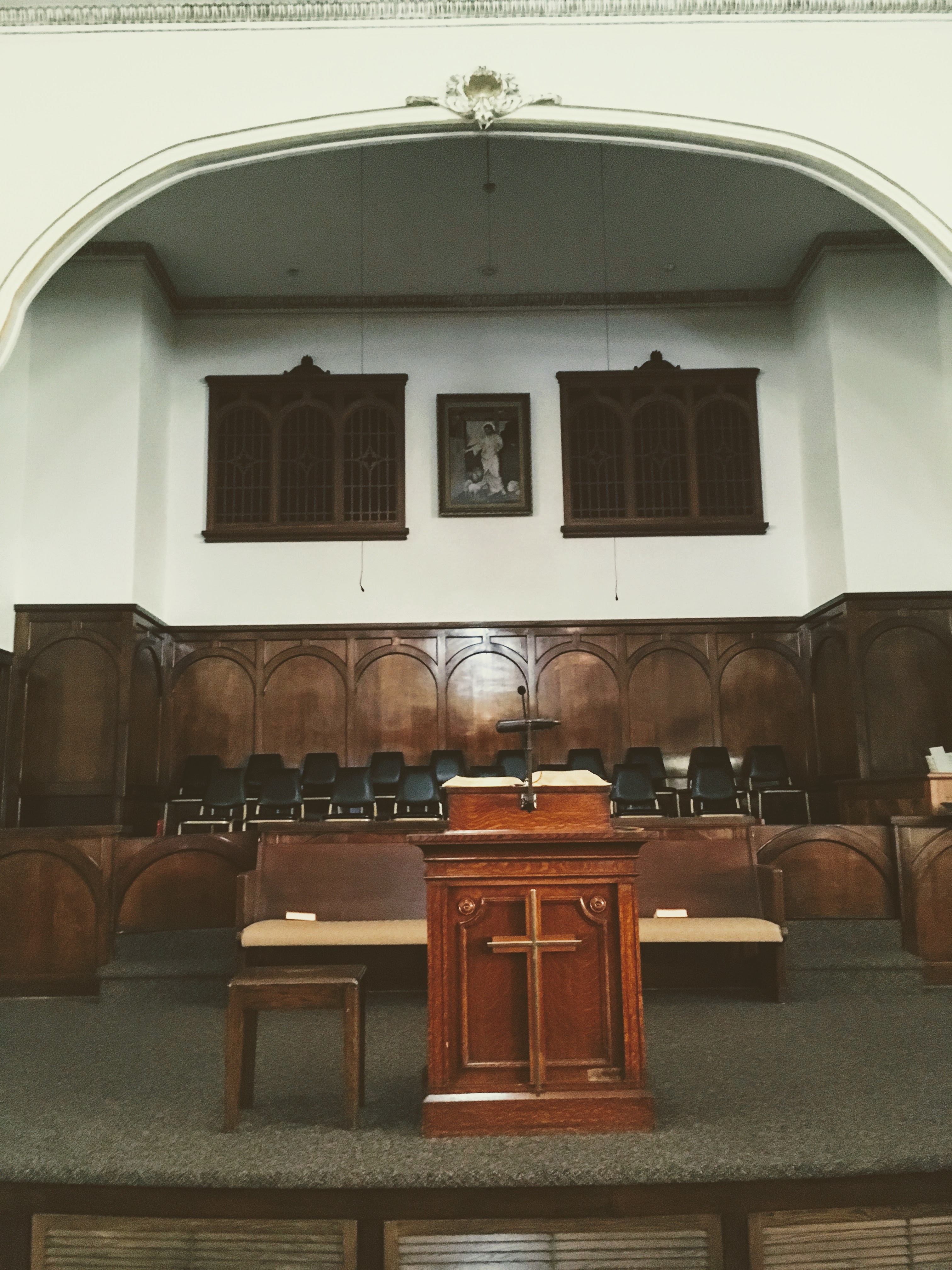July 18, 2021
Prelude: Rosemary Nettrouer
Announcements
Thank you, Rosemary, for the music. Thanks for technical support by Michael Barrett, Joe Dawley, and Erin DeGroot, with music coordination by Dawn Blue.
- Thank you for wearing your mask to help protect the unvaccinated among us.
- Offering plates are near the front and the back of the meeting room. Thank you!
- Childcare is available on the third floor from 9:45 until about 15 minutes after worship concludes.
- We are worshiping in person and live streaming on Facebook and the church website (wichitaquakers.org).
- Please feel free to share our worship with your Facebook friends by posting a link.
- Please also feel free to comment on the Facebook page with prayer concerns, announcements, or words of ministry.
- And if you worship with us online only and would like to be more connected, please leave a message on the Facebook page or the church website.
- Today at 11:00 am we have Monthly Meeting for worship with attention to business.
- I will be on vacation Wednesday, July 21 through Tuesday, August 10.
- Dorlan Bales will be bringing the message next Sunday.
Welcome & Greeting
Music: “I Sing the Might Power of God,” Hymn #9
Call to Worship: Romans 12:1-2 (NRSV)
I appeal to you therefore, brothers and sisters, by the mercies of God, to present your bodies as a living sacrifice, holy and acceptable to God, which is your spiritual worship. Do not be conformed to this world, but be transformed by the renewing of your minds, so that you may discern what is the will of God—what is good and acceptable and perfect.
Centering Meditation
Music: “Happiness is the Lord,” Hymn #566
Children’s Message
Prayer Concerns
- Ann McDonald, Ryan and Rich — Ann McDonald fell and broke her pelvis, is too weak for rehab. Please keep her son Rich and her grandson Ryan as they accompany her on this journey.
- Our church’s pastoral search
- Randy Cook
- Joy Martin recently fell and broke her femur. The orthopedic surgeons recommended no surgery, so, after a brief stay in the hospital, she is going back to the nursing home.
- Our sisters and brothers in Cuba Yearly Meeting.
Pastoral Prayer
Kind and gracious God
Renew us. Transform us.
Message: “God Leads Us into Radical Change”
Scripture: Romans 1:18—2:4
At our Monthly Meeting for worship with attention to business last month, one of the topics we took up was the ending of negotiations with Friends University about the use of our building. As part of that discussion, we noted that, while issues around the Great Plains Yearly Meeting “Statement of Inclusion” has resulted in the end of both those negotiations and this church’s relationship with Mid-America Yearly Meeting, University Friends have not actually approved that statement. Maybe it’s time to do so.
In light of that, I have embarked on a series of messages about the theology of marriage and sexuality. The videos and my manuscripts are available online.
The first message in this series focused on the creation story of Genesis 1. I said,
God created human beings in God’s image, and God created human beings as male and female.
We have a position of privilege with regard to the rest of creation, a blessing and a responsibility.
Our sexuality is a gift, as much a part of our humanity as being made in the image of God. It, too, is a blessing and a responsibility.
The second message in the series took up the story of Sodom and Gomorrah from Genesis 19. What do we learn from that story? We learn to “… show hospitality to strangers, deal justly with the poor and vulnerable, and … [do] not force … sexual attention upon those unwilling to receive them” (Scanzoni and Mollenkott, Is the Homosexual My Neighbor?, p. 62).
The third message looked at rules in Leviticus 18 and 20, part of the Holiness Code. For us, being holy doesn’t mean following those rules. For us, living a holy life means being transformed by the Spirit of God, living a life of love for God and self and neighbor in our sex lives and in every other aspect of our lives.
Today is the fourth message in the series, and it takes up what the apostle Paul says in his letter to the church in Rome. Paul wrote that letter before he had ever been to Rome, and it was probably written in the late 50s (not the late 1950s but the late 50s, in the first century). And that was about 10 years before the first gospel was written.
I have to say, first, that the letter to the Romans is very dense. It bears reading and rereading.
Also, this letter makes an argument. As one scholar puts it, “… Romans is a sustained appeal for holy living, directed to gentiles tempted to look down on their beleaguered Jewish neighbors, within the community of believers in Christ and without.” The apostle calls the Romans to realize the justice of God in their lives together (NOAB, p. 1976).
Except for the greetings at the beginning and the end, it’s all of a piece, so it’s kind of hard to know how to break it up into manageable sections.
I’m going to read Romans 1, beginning with verse 18 and continuing through the fourth verse of chapter 2, in the New Revised Standard Version. It’s dense. I will read slowly and point out the main ideas.
Ready?
18 For the wrath of God is revealed from heaven against all ungodliness and wickedness of those who by their wickedness suppress the truth. 19 For what can be known about God is plain to them, because God has shown it to them. 20 Ever since the creation of the world [God’s] eternal power and divine nature, invisible though they are, have been understood and seen through the things [God] has made. So they are without excuse; 21 for though they knew God, they did not honor [God] as God or give thanks to [God], but they became futile in their thinking, and their senseless minds were darkened. 22 Claiming to be wise, they became fools; 23 and they exchanged the glory of the immortal God for images resembling a mortal human being or birds or four-footed animals or reptiles.
God is angry at all wrongdoing. No one gets off. The created world shows God’s power and God’s nature, so people should have known better. And instead of honoring God or thanking God, they made images of humans or animals to worship.
24 Therefore God gave them up in the lusts of their hearts to impurity, to the degrading of their bodies among themselves, 25 because they exchanged the truth about God for a lie and worshiped and served the creature rather than the Creator, who is blessed forever! Amen.
As The Message puts it, “God said, in effect, “If that’s what you want, that’s what you get.””
26 For this reason God gave them up to degrading passions. Their women exchanged natural intercourse for unnatural, 27 and in the same way also the men, giving up natural intercourse with women, were consumed with passion for one another. Men committed shameless acts with men and received in their own persons the due penalty for their error.
I’ll come back to that.
28 And since they did not see fit to acknowledge God, God gave them up to a debased mind and to things that should not be done.
The Message again: “Since they didn’t bother to acknowledge God, God quit bothering them and let them run loose. And then all hell broke loose….”
This is how bad things got:
29 They were filled with every kind of wickedness, evil, covetousness, malice. Full of envy, murder, strife, deceit, craftiness, they are gossips, 30 slanderers, God-haters,[f] insolent, haughty, boastful, inventors of evil, rebellious toward parents, 31 foolish, faithless, heartless, ruthless. 32 They know God’s decree, that those who practice such things deserve to die—yet they not only do them but even applaud others who practice them.
Pretty bad, huh? And some of those hit kind of close to home. Right?
2 Therefore you have no excuse, whoever you are, when you judge others; for in passing judgment on another you condemn yourself, because you, the judge, are doing the very same things. 2 You say,[a] “We know that God’s judgment on those who do such things is in accordance with truth.” 3 Do you imagine, whoever you are, that when you judge those who do such things and yet do them yourself, you will escape the judgment of God? 4 Or do you despise the riches of [God’s] kindness and forbearance and patience? Do you not realize that God’s kindness is meant to lead you to repentance?
It’s awfully easy to point a finger at other people and say what they’re doing is wrong and deserving of God’s judgment. But, Paul says here, you’re doing the very same things. And God is angry at all wrongdoing — yours and mine as well as theirs.
Denial is futile. You will be held accountable.
The Message puts it this way: “God is kind, but … not soft. In kindness [God] takes us firmly by the hand and leads us into a radical life-change.”
As Romans continues, the basic point of this section is that it doesn’t matter whether you are gentile or Jewish – we might say whether you’re Christian or non-Christian – everyone knows right from wrong, and everyone has done wrong. The goal is not to make judgments about what other people have do. The goal is to receive God’s “kindness and forbearance and patience.” Receive it. Be grateful for it. And, by the grace of God and the power of the Spirit, get your act together.
That’s the basic point of this passage.
But along the way, Paul made this statement:
26 For this reason [that is, because people worshiped created beings rather than the creator] God gave them up to degrading passions. Their women exchanged natural intercourse for unnatural, 27 and in the same way also the men, giving up natural intercourse with women, were consumed with passion for one another. Men committed shameless acts with men and received in their own persons the due penalty for their error.
Here are the same two verses in The Message:
26-27 Worse followed. Refusing to know God, they soon didn’t know how to be human either—women didn’t know how to be women, men didn’t know how to be men. Sexually confused, they abused and defiled one another, women with women, men with men—all lust, no love. And then they paid for it, oh, how they paid for it—emptied of God and love, godless and loveless wretches.
“This passage,” as one book puts it, “indicates that Paul believed same-sex desires and activities were dishonorable and unnatural” (Jung & Smith, Heterosexism, p. 78). “For many Christians this settles the debate” (Jung & Smith, p. 79).
“Christians faithful to Scripture must struggle with the question of how to evaluate in light of this text the loving and faithful same-sex unions of constitutionally homosexual [or LGBTQ] persons. How are we to interpret such a judgment in our context today?” (Jung & Smith, p. 80).
In the process of answering that question, we might want to explore what Paul meant by “unnatural.” In the context of sexuality, “unnatural” sounds pretty bad, even perverted.
One possibility is that “unnatural” means above and beyond what nature requires. As someone else has put it,
Relying on the assumptions of Hellenistic Judaism [that is, Judaism that had embraced Greek ideas], Paul presupposed that all same-sex desires and behaviors among the Gentiles resulted from their insatiable lust for sexual variety, rooted ultimately in their idolatry (Jung & Smith, 80).
Unnatural sex, then, would be putting the desire for sex above pretty much everything else, worshipping bodies rather than worshipping God.
Paul himself uses the term “unnatural” in a couple of other places. In Romans 11, he is discussing how God decided to include gentiles in Christianity. It’s like, Paul says, God pruned a cultivated olive tree (Israel) and grafted in a branch of a wild olive tree (the rest of us). The pruning is God’s judgment against wrongdoing, and the grafting is God’s kindness and grace.
Addressing the gentile believers of the church in Rome, Paul says in Romans 11:24, “… you have been cut from what is by nature a wild olive tree and grafted, contrary to nature, into a cultivated olive tree….” Including us into the plan of salvation, like grafting a wild branch into a cultivated tree, is unnatural. But we don’t consider that perverted. We consider it an act of grace.
Paul also used the term “unnatural” in 1 Corinthians 11. There, he argues that it is disgraceful for men to pray with a hat on and disgraceful for women to pray without a hat on (1 Cor. 11:5). It is similarly disgraceful and unnatural for men to have long hair and women to have short hair: “Does not nature itself teach you that if a man wears long hair, it is degrading to him, but if a woman has long hair, it is her glory?” (1 Cor. 11:14-15). Here, what seems natural and unnatural to Paul seems to us simply the custom of the day.
So what do we do with that when we’re thinking about sexual ethics? As someone else has suggested,
Paul’s moral judgment on same-sex desires and behaviors is … fairly clear. But the meaning and relevance of that moral judgment to our assessment of homosexuality is not clear. We must ask: ‘How ought this text function in contemporary debates among Christians…? What normative relevance does this text have for our moral evaluation of just, loving, and faithful [same-sex] unions among those so oriented to each other?’ (Jung & Smith, 81).
We know from Genesis that our sexuality is a gift of creation. We know from human experience over the centuries that human sexuality is vulnerable to distortion and lust. Excessive sexual desire is a real possibility for all people, male and female, gay and straight.
Morally, we might want to distinguish between relationships that are loving and faithful, respectful and responsible on the one hand, and relationships that are “exploitative, abusive, and violent” (Jung & Smith, 82).
And, as Paul wrote in Romans 1, our job is not to condemn other people but to acknowledge God as Creator and to take responsibility for our own stuff – to hear God’s judgment of our own wrongdoing, and to follow God’s call to a radically changed life.
It’s awfully easy to point a finger at other people and say what they’re doing is wrong and deserving of God’s judgment. But, Romans says, we’re doing the same things. And God is angry at all wrongdoing — yours and mine as well as theirs.
Everyone knows right from wrong, and everyone has done wrong. The goal is not to make judgments about what other people have done. The goal is to receive God’s “kindness and forbearance and patience.” Receive it. Be grateful for it. And, by the grace of God and the power of the Spirit, get your act together.
Open Worship
Benediction
Postlude: Rosemary Nettrouer
DECLARATION OF THE YEARLY MEETING
OF THE FRIENDS CHURCH (QUAKERS) IN CUBA
Peace is a desire and a necessity for all human beings. It is an essential condition for our personal and communal well-being. For the current moment in Cuba, marked by a crisis situation that affects the most sensitive areas of citizens’ lives, it is becoming something urgent.
Quakers, inspired by the teachings of Jesus, also seek to live and promote peace, through alternative ways, based on the principle of non-violence, to carry out civil justice and work within society to repair wrongs or errors.
Quakers believe in the Peace of Jesus. This Peace is not like what the world gives (John 14:27), from positions of power that exclude the voice of the least in the Kingdom. From this perspective, we Quakers know a Virtue that takes away the occasion of all war, and consequently, we do not support any way to solve conflicts that involves the use of force.
We therefore advocate for dialogue and for our authorities to recognize the tension and overwhelm of a people that feel vulnerable due to the precariousness of their economy, their health and their public services.
Likewise, we consider that the government must promote alternatives to violence in the face of other sectors of the people that, for various reasons, are fueled by positions of hatred that are encouraged from abroad and that in the current context of the crisis that we are experiencing, become breeding grounds for the emergence of violent demonstrations with unpredictable consequences.
This is the time to open spaces for dialogue in the search for an answer to dissatisfaction and a solution to our problems. Let us all seek a common path that leads us to well-being and peaceful coexistence. Conflicts, if we address them with non-violent alternatives, are opportunities to find a peace that shelters all Cubans.
We are meeting in person and also streaming our sermons on Facebook at 10:00 AM CST. Watch live:
https://www.facebook.com/universityfriendschurch/
Not on Facebook? You can see all of our posts and videos on our site here!



